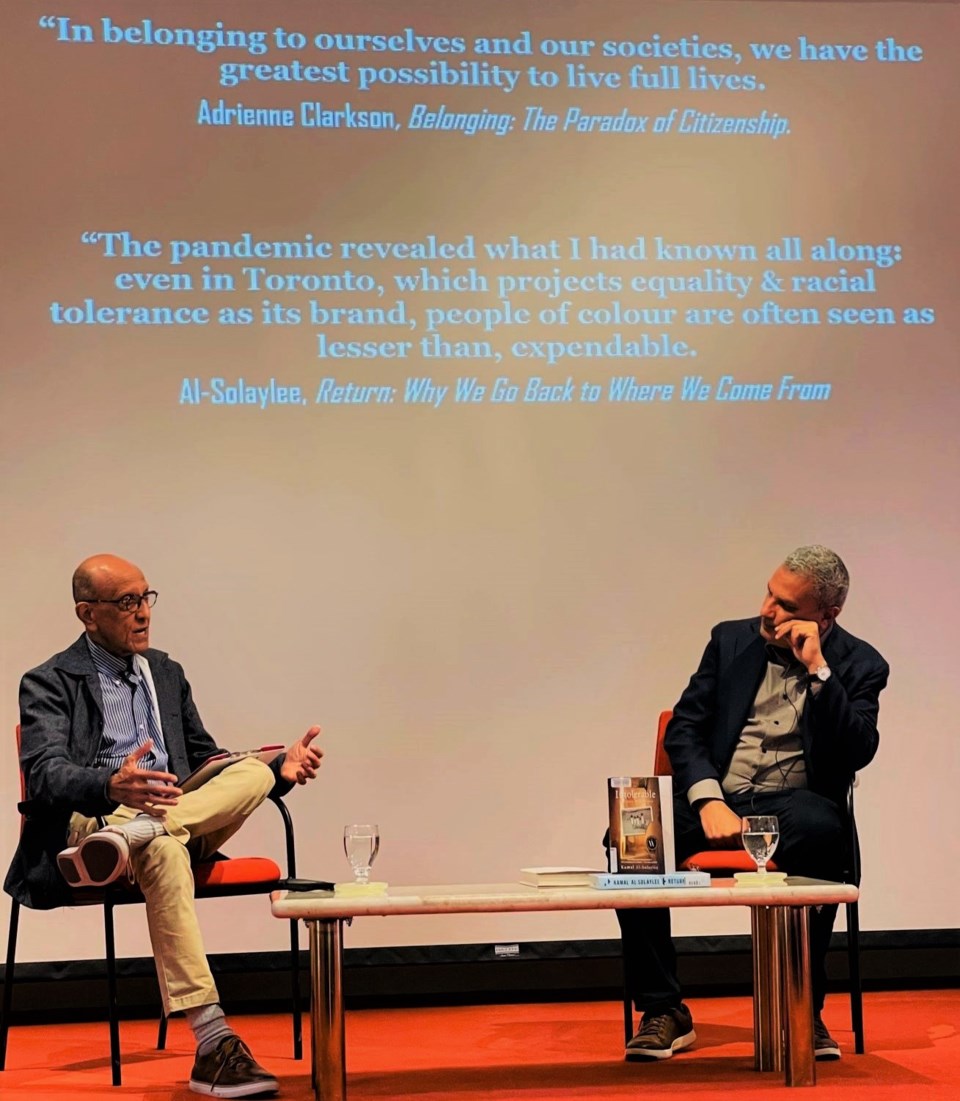Obstacles to immigrants like ethnic and religious stereotyping continue to thrive in Canada, says a prominent Canadian journalist.
Journalist and director of UBC's School of Journalism, Kamal al-Solaylee, speaking during the fifth and final instalment of the five-part conversation series of SFU’s Onstage Conversations, hosted by Simon Fraser University scholar Amyn B. Sajoo, explored the role of race and meaning of “home” in a diversifying world.
The author of Brown, Al-Solaylee spotlighted the constant suspicion of “brown” Muslims in a post-9/11 world as lines blur between migrants, who move out of desperation, and immigrants, who relocate to find better lives.
“Those of us who are Muslim, live under constant suspicion for the religion we follow,” he said. Although there are Muslims from different parts of the world, including Europe and Yugoslavia, mainstream media has been complicit in painting a picture of terrorists as brown-skinned Muslims, he said.
He added that the intersection of race, ethnicity and gender has promoted stereotypes such as the association of brown people with transient labour and domestic workers from the Philippines and Indonesia.
“It’s hard not to think of the grand South Asian worker, without considering the thousands of construction workers from Nepal, Sri Lanka, and Bangladesh, whose blood and sweat [helped build] virtually every building — high or lowrise — in Dubai and Qatar,” he said.
“It is in Dubai too, that middle-class immigrants from the Middle East and the South Asian subcontinent have for decades kept the schools banks, hospitals, hotels, food courts and malls running without ever being afforded the benefits of citizenship.”
The stereotyping exists worldwide and Canada is no exception, he said. In this country, immigrant doctors are seen driving cabs and engineers working in factories. It is largely due to a gap existing between Canada’s immigration policies and where the labour market is, he added.
“I think this is a bigger conversation about recognition of qualifications from abroad, for example. I live in a building where the doorman was a classical musician, for example, this in Toronto. And I think something needs to be done fast. To recognize the qualifications from overseas universities. A lot of that is racism as well, like it's perceived that university in Pakistan, or in Nepal would not be good,” he said.
“If you believe it will not be the same good quality education, then create some kind of fast-track program where you could retrain people to Canadian standards.”
Al-Solaylee said it must be recognized that the path to career progress for new immigrants is being hampered by a professional societies or special interest groups, leading to overworked, exploited immigrants without a pathway for citizenship.
He believes that “race infiltrates every aspect of an experience,” and hopes there will be continued serious discussion about race and belonging in Canada. It all starts with reclaiming the term “brown” as “self-identity," he said.
“If you're a Black Canadian, and you say, I'm a proud Black Canadian, does that marginalize Black communities? I don't think it does,” he said.
“If you’re an Irish-Canadian, and you say, I am proud of my Irish roots and my Irishness, does that make you less Canadian? But why is it that we when people are saying I'm brown or I'm Muslim or Indian or Pakistani that we kind of feel, you may not be quite as Canadian.”
“I think as I write in the book is because a lot of other young people from European background, Southern European background who came here in the 19th century, lost that hyphen, Italian-Canadian, Irish-Canadian. That hyphen just became Canadian, but that hyphen is still there for us.”
The hyphen will likely stay, he said, mainly because of the skin colour. “We are always going to be Muslim-Canadian, brown-Canadian, Indian-Canadian, Ismaili-Canadians."
In opening the talk, Sajoo noted, “In modernity, we fit people into our preconceived ideas of citizenship, and belonging.” But he challenged the idea, saying, “Depending on where you are, it's not universal,” he said. “The rules of the game are not uniform you have to fit in.”
Echoing the words of Olivier Roy, the author of Holy Ignorance, Sajoo reminded the audience of the difficulty of trying to fit in, especially in the age of Islamophobia, by pulling up the government statistics for hate crimes in 2021.
“Hate-motivated crimes targeting religion jumped 67 per cent in just two years,” he said. “Those targeting sexual orientation find 64 per cent. And those targeting race or ethnicity, which were already very high, went up another six per cent.”
Onstage Conversations 2022 were presented by Simon Fraser University, in partnership with the Ismaili Centres.



